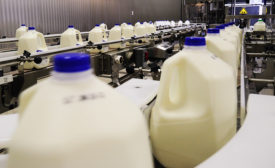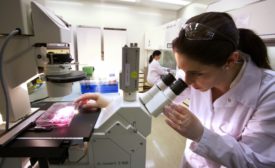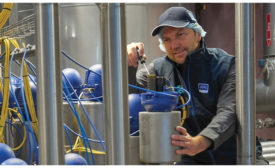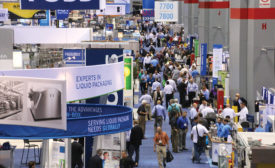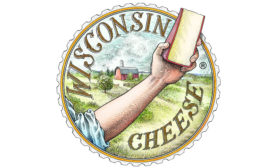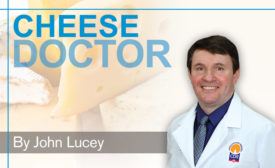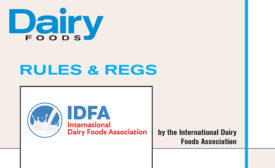Home » dairy food safety
Articles Tagged with ''dairy food safety''
By putting the right programs and procedures in place, dairy facilities could help prevent cross-contact and contamination that lead to costly recalls.
Read More
Best practices for maintaining hygienic design
A look at key considerations to help identify and control equipment-related food safety hazards during maintenance operations.
December 8, 2017
A comprehensive environmental monitoring program can mitigate your recall risk
A comprehensive environmental monitoring program is the best ammunition in the fight against potential pathogen-related food recalls.
October 11, 2017
Maximize efficiency and food safety in a dairy plant
Equipment producers explain how to optimize heat exchanger and homogenizer performance.
October 11, 2017
2017 Process Expo focuses on food safety and education
The tradeshow showcases equipment for dairy and other food processing industries and features new interactive educational opportunities.
September 7, 2017
Dairy People News
Wisconsin Milk Marketing Board names Adam Brock director of technical services
Brock joins WMMB with over 14 years of experience in food quality and research and development.
September 6, 2017
Verifying the integrity of hygienic equipment design
Processors need to know that the policies and procedures they’re using are sufficient to guarantee the integrity of hygienic equipment design.
August 10, 2017
Reducing safety risks in dairy products
The industry is focusing on developing new processes and technologies that have a significant impact on safety but a minimal impact on the product.
August 8, 2017
Dairy food safety: Zoning practices can control Listeria
The first step towards developing an effective seek-and-destroy program is to make sure the Zone 1 food contact surfaces are of good sanitary design.
August 7, 2017
Stay ahead of the curve. Unlock a dose of cutting-edge insights.
Receive our premium content directly to your inbox.
SIGN-UP TODAYCopyright ©2025. All Rights Reserved BNP Media.
Design, CMS, Hosting & Web Development :: ePublishing
